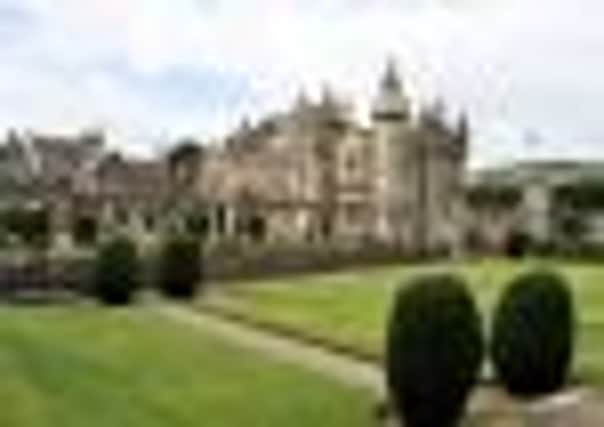Travel: Abbotsford fostering links between Scotland and Russia


IN January a team from Abbotsford, Scott’s Borders home which this summer opens a new visitor centre and restaurant under a £12 million restoration project, visited Moscow and St Petersburg to tout for Russian business. Why?
Consider the size of this big brother, with figures courtesy of Scottish Enterprise’s “man in Moscow”. Russia’s 17 million square kilometres is populated by almost 142 million people, whereas only five million people reside in Scotland’s 79,000km2 landmass. Russia’s GDP totally dwarves ours. Maybe it’s no wonder Abbotsford, and its accompanying delegation from Visit Scotland and Historic Scotland, are tantalised by how valuable Russian tourism could be to Scotland. But how interested are the Russians in us, and Scott?
Advertisement
Hide AdAdvertisement
Hide Ad“Of Abbotsford’s 30,000 visitors last year,” reports the Abbotsford Trust’s chief executive Jason Dyer, “Five per cent were Russian tourists – two to three coach parties per week. It’s amazing how many recognise the house: there’s a worldwide love of Scott, and Abbotsford wants to communicate this to Scotland, and to the Borders. Scots don’t realize how far his reach is: Abbotsford gets enquiries from Brazil, Argentina, and even the Middle East. Very rarely do we get an enquiry from Scotland.”
So why is Scotland popular in Russia? “Russians are drawn to a romanticised image of Scotland: a mystical land of Highlands, castles, lochs and kilts,” asserts Jenny Carr, chair of the Scotland-Russia Forum, an Edinburgh charity promoting understanding between the two countries. It’s the land, in other words, created in the imagination of Sir Walter Scott. So it seems, almost 200 years after they were written, Scott’s historical novels continue to sell us abroad today. “Scott invented the brand,” concludes Carr, whose cross-cultural work won a medal for “friendship and co-operation” from Russia’s Ministry of Foreign Affairs.
“You only have to look at a library of books from the great century of Russian literature, which the Russians are very proud of, to see Scott’s influences,” argues Dairmid Gunn, chairman of a Cold War UK-USSR cultural commission, and nephew of Scottish writer Neil M Gunn. “Scott took Europe and Russia by storm, because he was the innovator: he invented the historical novel with Waverley in 1814. No one had written like that before, and lots of people copied him, including the Russians, like Pushkin, Gogol, Turgenev and Tolstoy.”
Scott’s novels are even taught on Russia’s curriculum. “Russian primary school children as young as ten are reading Ivanhoe, yet a 14-year-old at one of Edinburgh’s top private schools may never have heard of him,” laments Carr. More Russians seem to be reading Scott than Scots. And it’s not just the Russians: last year Scott’s Waverley novels were translated into Japanese and Mandarin.
But here Scott is a forgotten man. Every day he passes under our hands on Scotland’s banknotes, and his towering monument dominates the heart of Edinburgh on Princes Street: the first sight for millions disembarking at Waverley station, named, of course, after Scott’s first best-selling novel. He was the English language’s first best-selling novelist, Scotland’s first artistic celebrity, and arguably the greatest imaginative genius of his time. In his homeland today he is barely read, largely invisible, but not it seems beyond our shores.
While Scott – a Tory and Unionist – did not believe in a Scottish political identity, he did stand for a cultural one, and used his celebrity status to fight for a distinct Scottishness, campaigning to save Scots Law and Scottish banknotes. In his novels Scott’s mission, and legacy, was to unify Scotland in one vision: he reinvented the country’s past to benefit its present and future.
Scott poured his creative energies into designing and building Abbotsford – “a museum for living in” he called it. And this May, Scott’s museum on the banks of the River Tweed will open its new, free visitor centre and exhibition, Ochiltrees café and restaurant, gift shop, garden and woodland walks.
• Discover more about Sir Walter Scott and Abbotsford at www.scottsabbotsford.co.uk, and Scotland’s connections with Russia at www.scotlandrussiaforum.org